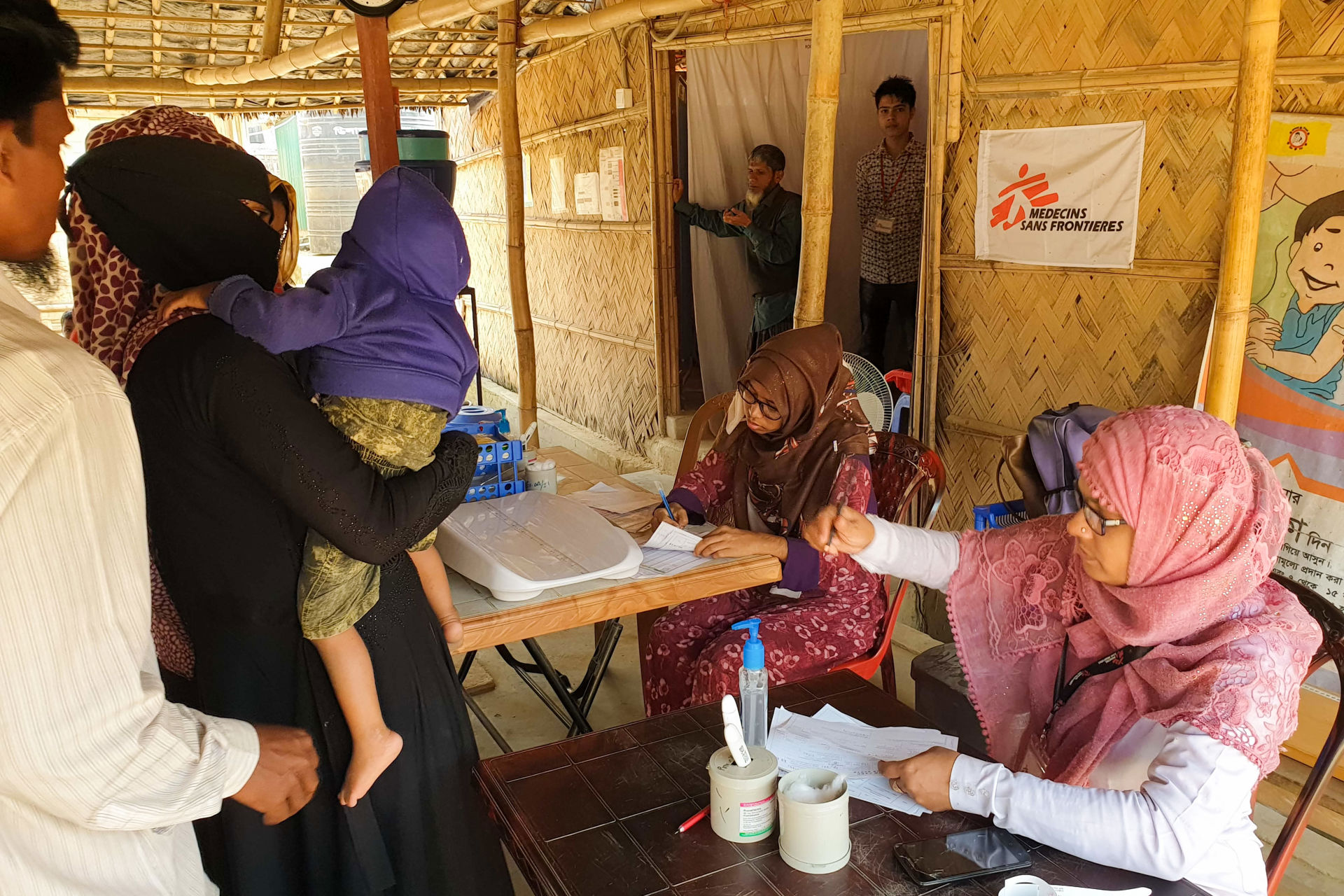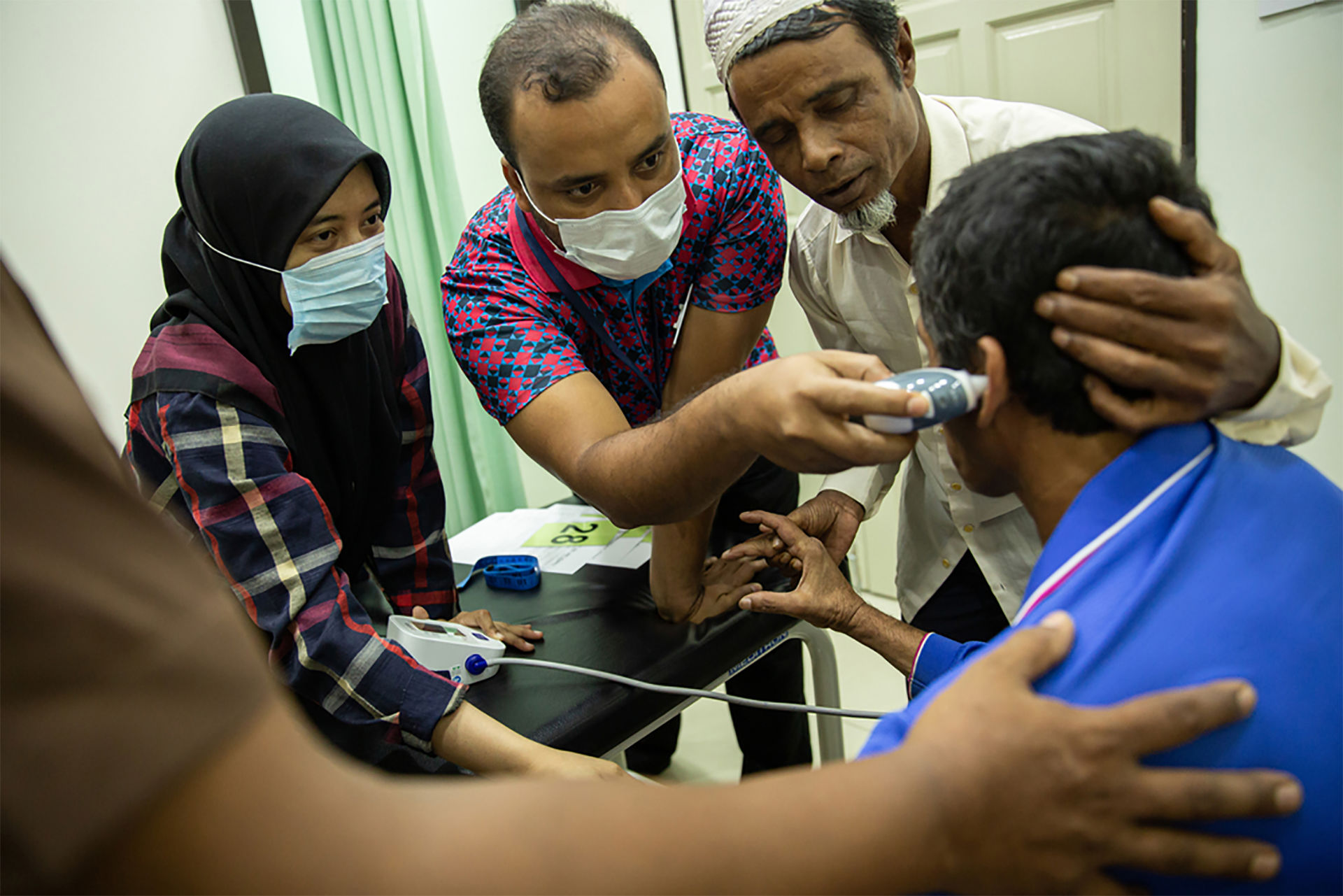Is it possible to personalize medical care when you have thousands of patients but limited resources?
MSF nurses Darwin Diaz and Jose Vincent Pagarugan from the international humanitarian organization, Médecins Sans Frontières (MSF) or Doctors Without Borders, were assigned to work in the largest refugee settlement in the world, in Bangladesh.
Read on to learn how their teams improvised to deliver quality care in a challenging setting.
It’s hard not to be overwhelmed with the number of patients we see every day.
We typically receive more patients at the beginning and end of the week, which are Sundays and Thursdays in Bangladesh. We see an average of 500 Rohingya refugees and Bangladeshi patients every day at the three MSF primary healthcare centers located in Jamtoli camp, a smaller camp beside the huge Kutupalong-Balukhali megacamp. We have to manage the influx of patients to be efficient.
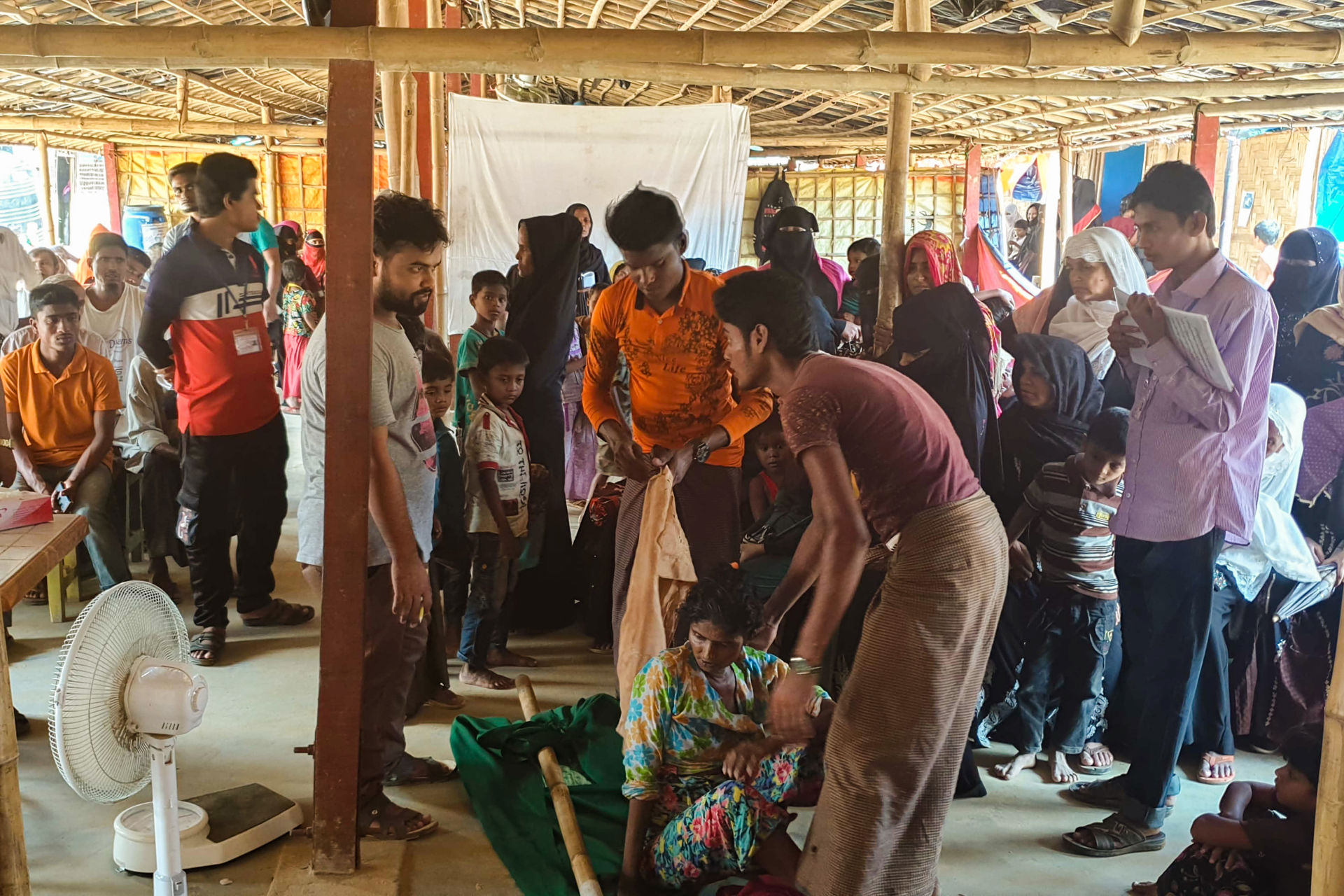
A simple sorting system was key to attending to each patient and seeing quickly what we can do for them.
Due to the high number of patients coming to our centers every day, our staff were trained to do proper triaging or sorting to prioritize patients according to their needs. They also take vital signs and guide patients on what to do next. This keeps the flow of people organized and manageable.
We treat diseases that are common among people who live in cramped spaces.
Poor hygiene and sanitation greatly affect the quality of life in refugee camps. Common diseases among many of our patients include acute watery diarrhea, upper respiratory tract infections, and skin diseases. In overcrowded and poorly ventilated conditions, outbreaks like diphtheria and chickenpox can occur and spread very quickly. A number of vaccination campaigns were already done across the camp but so long as living conditions remain poor, the risk of a potential outbreak remains.
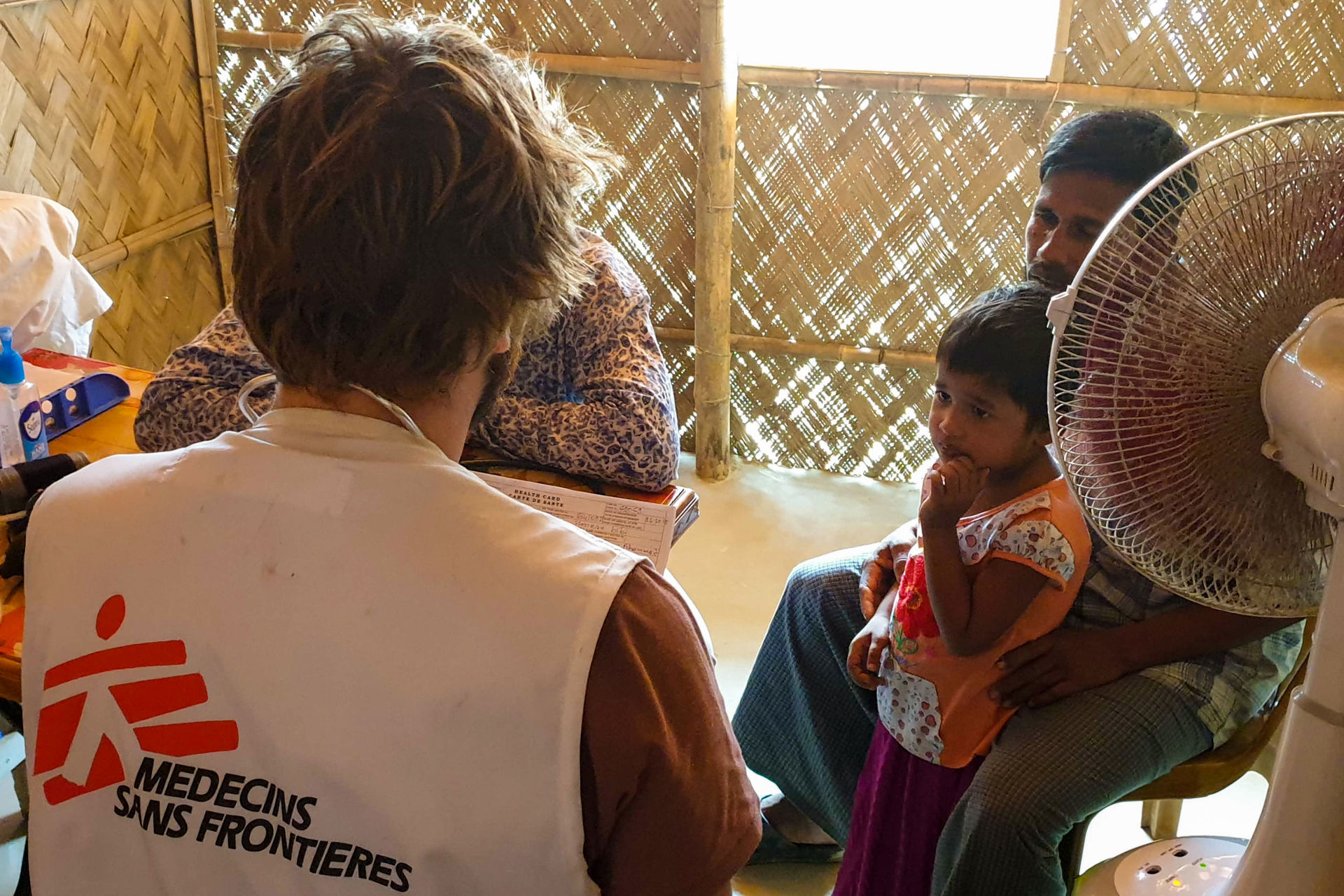
The community has to store clean water and maintain proper hygiene.
Clean water is essential for good health and sanitation. The simple practices of drinking clean water, washing one’s hands, and using a well-maintained toilet can prevent a lot of the diseases we treat. Our colleagues – especially our water engineers and sanitation experts – work with the community to install and maintain water and sanitation infrastructure, and to educate people on how to maintain good hygiene practices. The megacamp is a few kilometers wide and virtually every area has a refugee shelter on it.
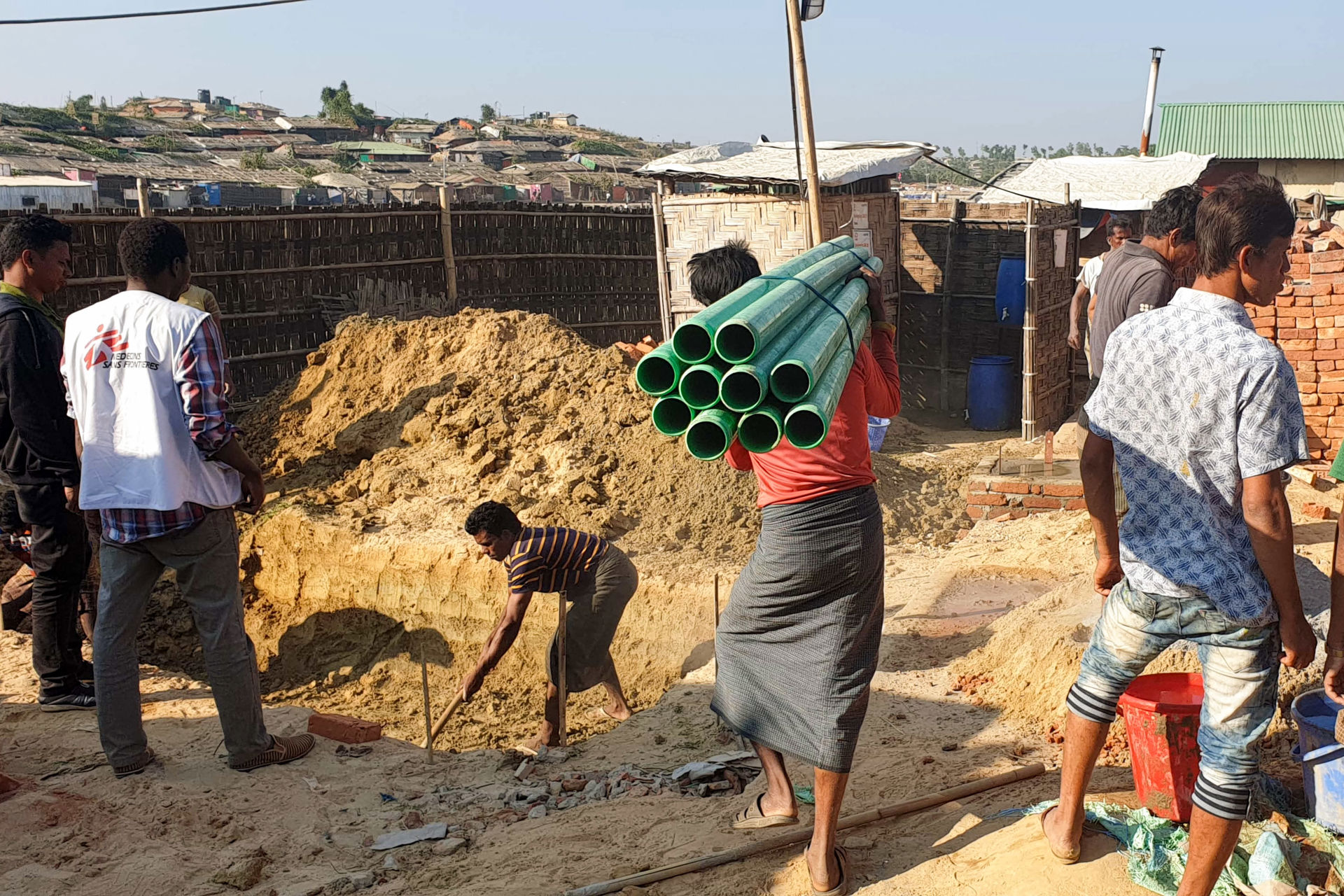
Activities in the camp slow down during monsoon season as the heavy rains cause muddy roads and floods.
Trucks traverse the camp carrying heavy loads of bamboo that are used to build structures, including temporary shelters and health facilities. This truck was in front of our vehicle and tipped over due to the muddy and rough road.
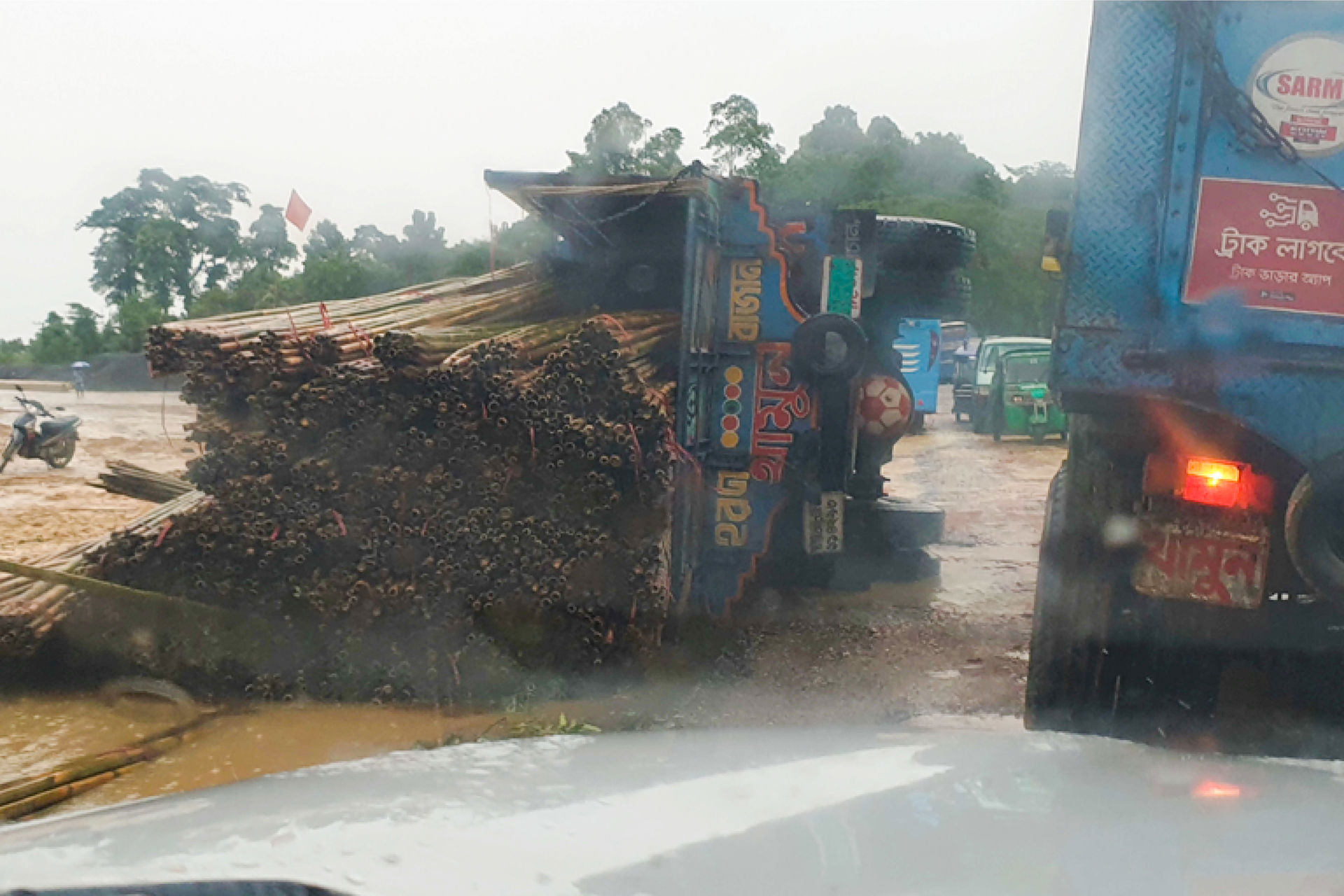
People in the camp adjust and improvise with what they have, so we do the same.
The makeshift shelters in the refugee camp sit on top of a hilly landscape. Landslides happen frequently, especially during rainy season. In our health facilities, as in the other structures in the camp, sandbags reinforce our fences and serve as improvized protection from floods and landslides. We also set up temporary bridges from bamboo and sandbags so our patients can reach our facilities.
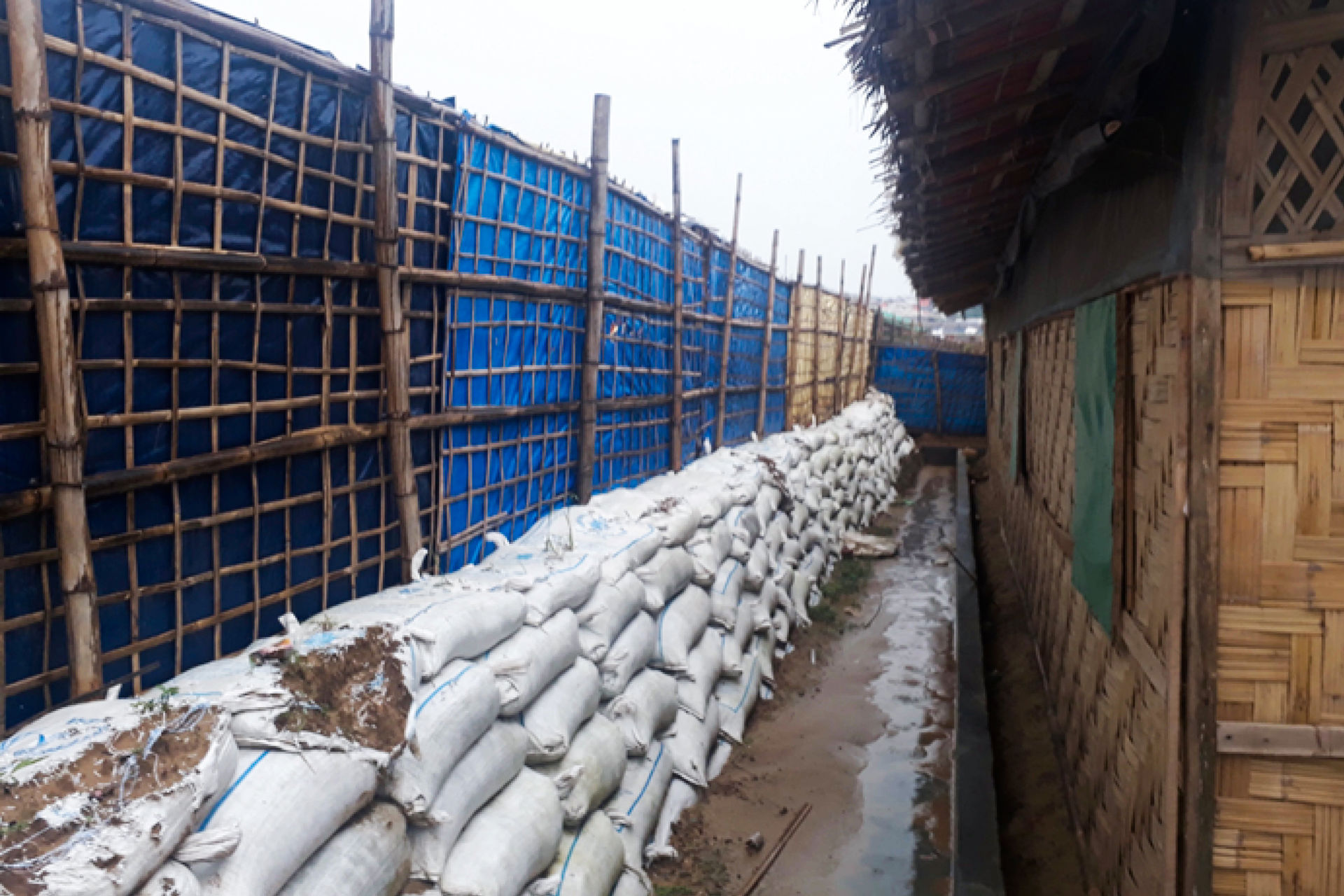
Providing the best care can sometimes be about finding simple solutions.
A Rohingya patient named Abul Kalam had a wound for two years before we first saw him. Due to misuse of medicines, he developed antibiotic resistance. He also tried to relieve the pain by persistently scratching or cutting scabs over his wound. Our team made sure to continuously follow up on his case so he received proper treatment.
We also made a crutch out of wood for Abul Kalam. We covered it with cotton and bandages and fixed it with elastic tapes. This helped him walk around without exposing his affected foot to mud and dirty water. He recovered quickly.
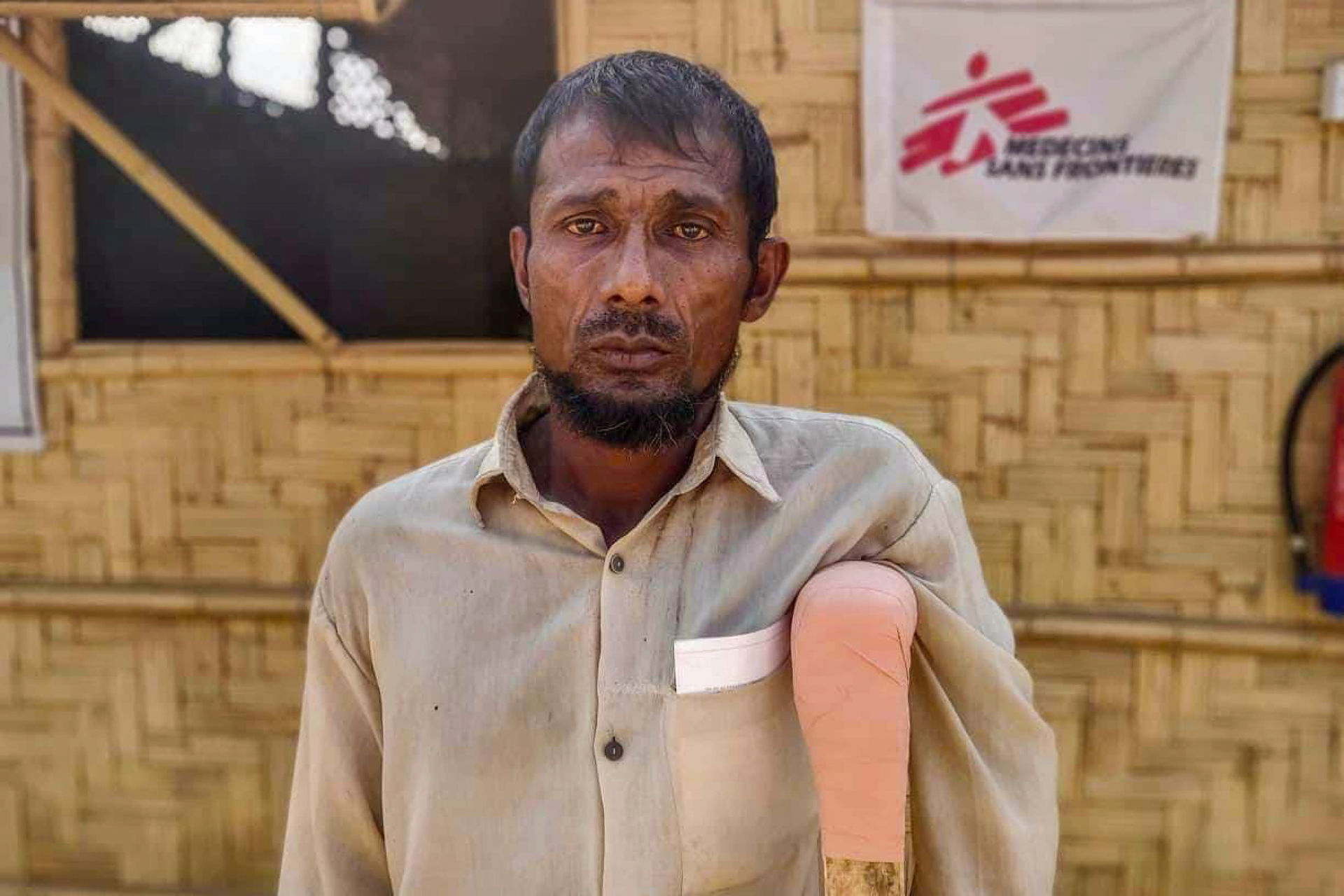
The work continues at the refugee camp.
A beautiful sunset over Jamtoli camp calms us after another busy day. Most of the time, we feel there’s more work to be done. Other days, however, we know that small and big efforts alike bring us closer to providing the best quality of care possible for the community.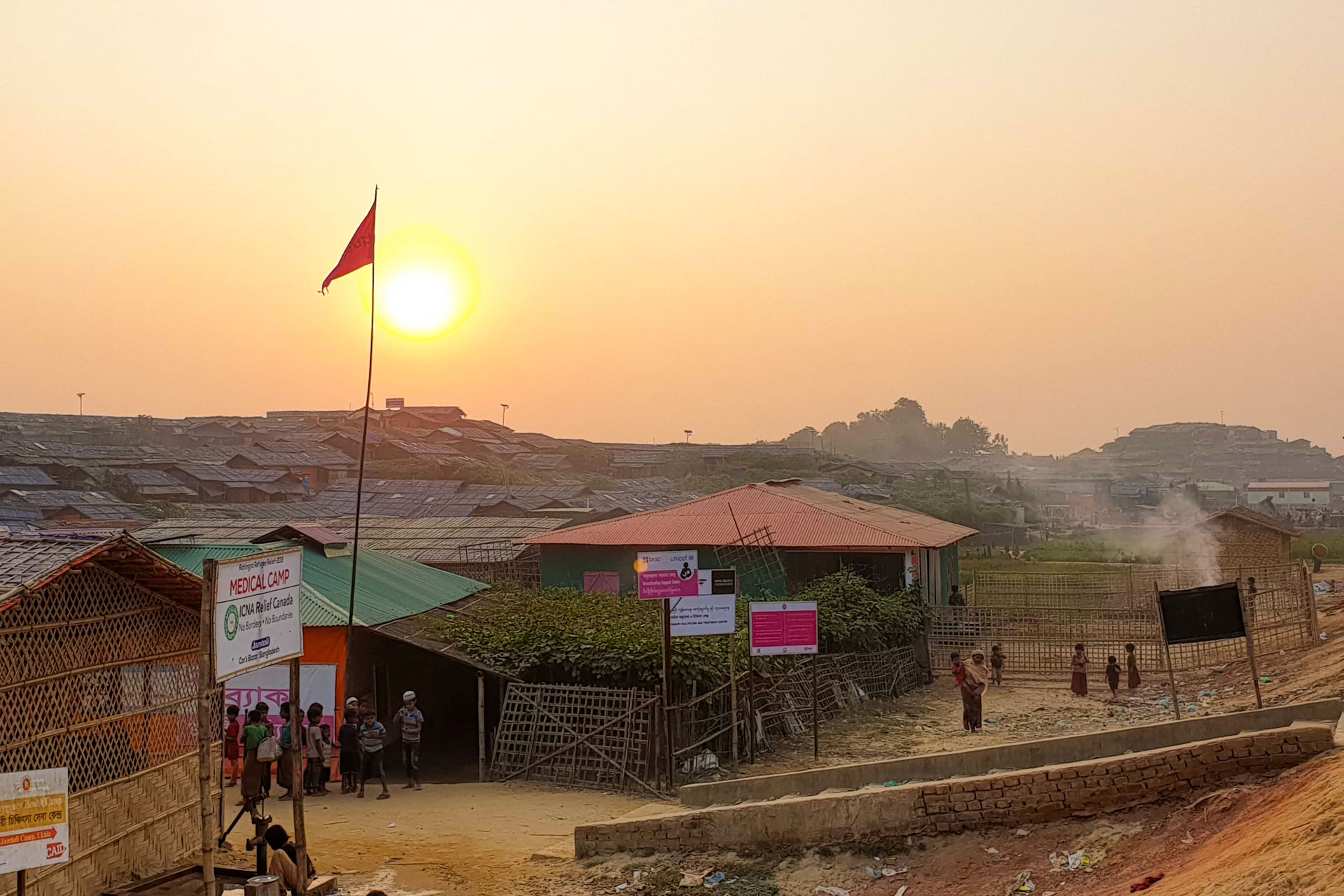
About the authors
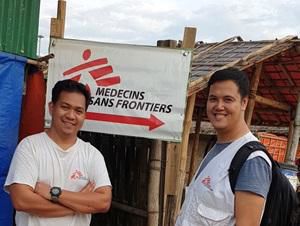
Jose Vincent Pagarugan (left) and Darwin Diaz (right) worked together at the Jamtoli camp in Cox’s Bazar District, Bangladesh in mid-2018 to early 2019. Darwin joined Médecins Sans Frontières in 2014 and had worked in three projects in South Sudan before joining the Bangladesh team responding to the outbreaks in Cox’s Bazar. Jose, on the other hand, was assigned to Yemen before his deployment to Bangladesh. Moving on to their next assignments with MSF, Jose currently serves as a nurse activity manager in Gaza while Darwin will go to Pakistan as a project medical referent.


